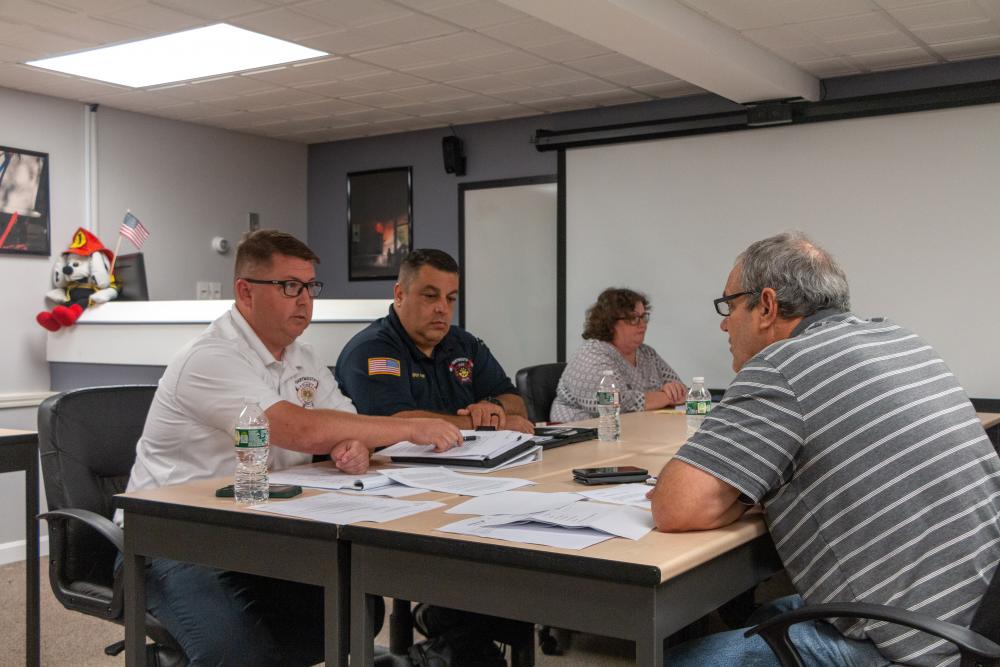Acting Fire Chief submits letter of protest over hiring process
A meeting of the Fire District 2 Prudential Committee came to an abrupt halt on Wednesday, Nov. 2 after Acting Chief Greg Edgcomb informed the committee that he had retained legal counsel and submitted a letter of protest in relation to the hiring process.
Edgcomb, who is one of two candidates set to be interviewed for the permanent spot, alleged that the committee had committed “multiple open meeting violations” and that its chair, Bob Bouley, had refused to negotiate a contract without consulting other committee members.
Edgcomb, who has led the department for nearly a year since the resignation of former-chief Tim Andre, made the allegations in a “letter of protest” that he read into the record before the interview began “on the advice of [his] lawyer.”
In the letter, Edgcomb cited a number of specific instances of alleged open meeting law violations.
The first specific instance was the decision of the committee to extend the application deadline for the chief position outside of an open meeting.
The Prudential Committee had originally set a deadline of Sept. 5 for the applications, but announced at a Sept. 12 meeting that the deadline had been moved to Sept. 16.
The letter also alleged that the “most egregious” open meeting law violation that could be documented was committed when the committee organized an advisory board to review applicants.
The advisory board was announced during the committee’s Oct. 17 meeting, at which time Bouley already had a list of people who would be appointed to the board. However, the committee neglected to vote on the appointment of the board during that meeting.
Despite the fact that the advisory board was never officially appointed, the Prudential Committee provided members of the board with personal information from both candidates’ applications, something the letter claimed “further amplified” the violation.
Finally, the letter claimed that, during a call with Bouley on Oct. 28, Edgcomb suggested the Prudential Committee negotiate with him over the contract it had previously offered him. The full contents of the district’s offer were not publicly available.
The letter alleged that Bouley responded that he was “not interested” in negotiating because “that was the contract the other chiefs had signed without any issues.”
“It is the job of the entire Prudential Committee to negotiate a contract and not the sole responsibility of the committee chair alone,” the letter read.
Edgcomb also alleged that “private conversations” had occurred between prudential committee members outside of open meetings, but did not specify the content of these conversations.
After the letter was read into the record, District Counsel Anthony Savastano advised the Prudential Committee to adjourn the meeting and schedule an executive session to discuss strategy in regards to the potential litigation before continuing the interview process.
“He’s threatened litigation here; you need to talk about a strategy to engage in negotiations with non-union personnel if you intend to move forward,” he said. “I don’t know what the intent of the board is, but based on this letter I think you should adjourn this meeting and schedule an executive session.”
The committee adjourned the meeting without further discussion.















